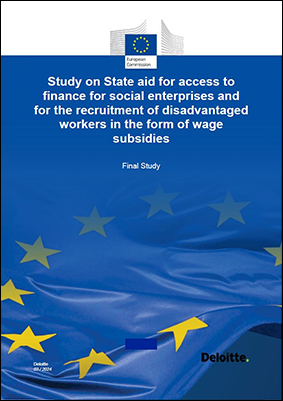State aid rules are important framework conditions for actors of the social economy, as public funding plays an important role in that ecosystem. The present Study examines the application and impact of the General Block Exemption Regulation (GBER) in supporting social enterprises (SEs) and the recruitment of disadvantaged workers across European Union Member States.
That Regulation is a central element of EU State aid rules: Aid that fulfils its conditions does not need formal Commission approval, thus can be granted rather quickly and unbureaucratically. Member States implement most State aid measures under the GBER: 93% of new non-crisis aid measures.
Findings reveal that regarding social enterprises and recruitment aid, national authorities often prefer alternative funding sources over GBER, citing reasons such as low awareness of State aid rules, the complexity of the GBER, and administrative challenges.
According to the study, SEs face barriers to accessing finance, including limited legal status recognition and complex regulatory environments. SEs rely heavily on de minimis State aid schemes, but this may impede their growth. State aid rules for access to finance, particularly relating to age limits and private investment requirements, may pose hurdles for SEs’ financial access.
The study’s authors conclude that addressing these barriers requires simplifying State aid rules, enhancing awareness, and creating supportive regulatory frameworks tailored to SEs’ needs. Efforts to improve access to finance should prioritize reducing complexity and fostering an environment conducive to both SMEs and SEs.
As regards aid for the recruitment of disadvantaged workers, the study confirmed that there are support schemes in all the countries surveyed, both within and outside the social economy. In most countries, the support however does not constitute State aid in the view of the national authorities or is de minimis aid that is not subject to EU State-aid control. The authors recommend that GBER rules could however be improved by an extension of the list of disadvantaged workers and of the timeframe for the recruitment of disadvantaged workers (to 24 months) and severely disadvantaged workers (to 36 months).
https://eur-lex.europa.eu/EN/legal-content/summary/general-block-exemption-regulation.html







